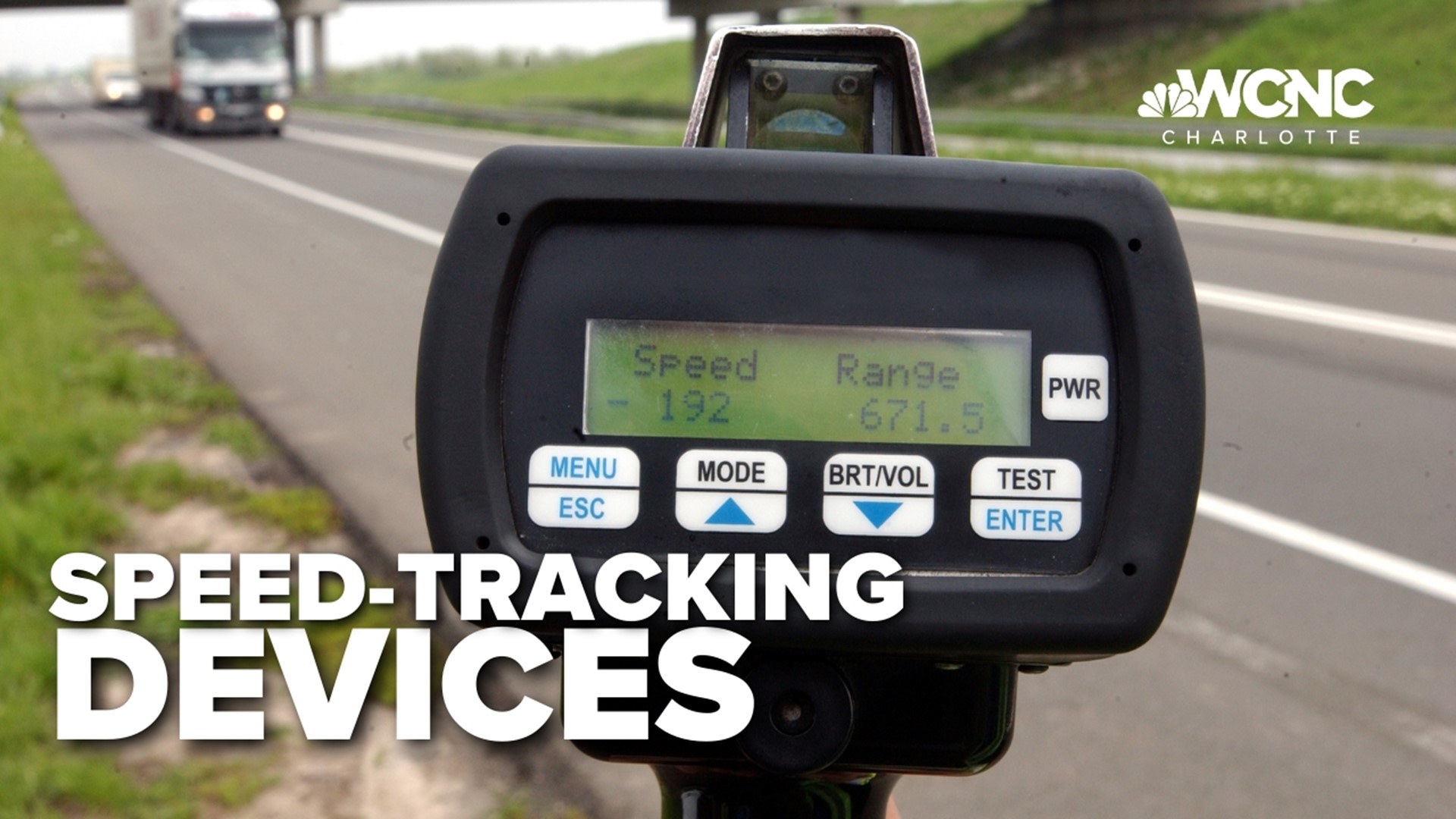CHARLOTTE, N.C. — An unknown number of Mecklenburg County speeding cases and tickets could be called into question due to revelations the Charlotte-Mecklenburg Police Department did not calibrate their radar and lidar devices in accordance with state law.
While CMPD equipment was tested, testing was not completed by an appropriately certified employee, the city of Charlotte announced Wednesday. CMPD said technicians were experienced and followed the manufacturer's instructions. However, technicians who were not Federal Communications Commission-certified were responsible for 170 of the department's 230 devices.
The department says it is possible the problem dates back to 2008 and was prompted by a misunderstanding of state law.
As of this week, Mecklenburg County courts are scheduled to hear approximately 17,000 cases in 2023 alone involving at least one speed-related charge, the Mecklenburg County District Attorney's Office told WCNC Charlotte Thursday in response to our questions.
The DA's office learned of the concerns on Tuesday, noting that equipment used to frequently track drivers' speeds have to be tested and certified by a FCC-certified person, per state law.
Gary Mauney, with Charlotte law firm Mauney PLLC, said the certification situation creates a multi-layer concern for the city and the district attorney's office with the potential for improper convictions over the years and civil rights violations.
"You're entitled to a fair and credible prosecution by our government, and you're entitled to know that the evidence that is being used against you is not illegal or bogus," Mauney said. "So, essentially what the city is saying is that some of the primary evidence that's been used against people to prosecute them over speeding offenses did not meet the legal standard."
The full implications of this discovery on drivers with pending speeding cases are still unknown, but the DA said the office will look at each case as it appears in court and determine whether the evidence from radar or lidar equipment is relevant to prosecuting.
"By state law, the devices are used only to corroborate," the DA's statement reads. "It is the opinion of the trained officer that serves as the primary evidence for the prosecution of speeding cases, however, the DA’s Office recognizes the important role that corroborative evidence by these units plays in its ability to prosecute speeding charges."
The office said, however, some cases may ultimately get dismissed. The DA's office encourages drivers with speeding citations in Mecklenburg County to appear in court on the appropriate court date (or have their attorney do so, when relevant) "to discuss available options." It says to not pay citations online to resolve the case since the DA's office cannot review it.
"It was not admissible, it should never have been admitted. That is a big problem," Mauney said of the questionable radar and lidar evidence.
In response to CMPD's and the DA's announcements, the Mecklenburg County Sheriff's Office announced it was ceasing the use of lidar until the devices are properly recalibrated.
“This is an unfortunate turn of events and we’re hopeful that this doesn’t negate the hard work and efforts made by MCSO deputies to keep our roadways safe,” Mecklenburg County Sheriff Garry McFadden said.
Typically, it is possible to tell what type of device was used in a traffic stop. The speed a person was going will be noted on the ticket with a letter next to it. If the letter ‘R’ or ‘L’ is on a citation, it means radar or LiDAR was used.
This will have a trickle-down effect on the court system.
“If a number of tickets are just not going to be prosecuted for example, that clears out a decent backlog of cases that would otherwise have to be dealt with,” Ryan Ames, with the SeiferFlatow law office, said.
Defense attorney Ryan Ames suspects it may raise questions in previous cases too.
“There might be some relief that people are seeking from older tickets that causes new work for the court system,” he said.
WCNC Charlotte has been working to determine if older cases would be re-examined, and if so, how far back. Officials would not immediately answer that question as they continue to examine the issue.
Daniel Redford, president of the Charlotte Mecklenburg Fraternal Order of Police said he’s concerned that the certifications went unchecked for so long.
“We hope that the community will understand that and know that the trust in their officers is still there. The officers aren’t going out here and doing something wrong they were acting under the best faith that they knew in believing these instruments were certified,” Redford told WCNC Charlotte.
The City of Charlotte handles the certification process.
Money generated from speeding tickets goes directly into the court system. WCNC Charlotte is working to determine where the money would come from if older cases were to be overturned and money was to return to drivers.
Questions about this story or want to share your take? Text WCNC Charlotte at (704) 329-3600.
Contact Chloe Leshner at cleshner@wcnc.com and follow her on Facebook, Twitter and Instagram.
Contact Vanessa Ruffes at vruffes@wcnc.com and follow her on Facebook, Twitter and Instagram.

